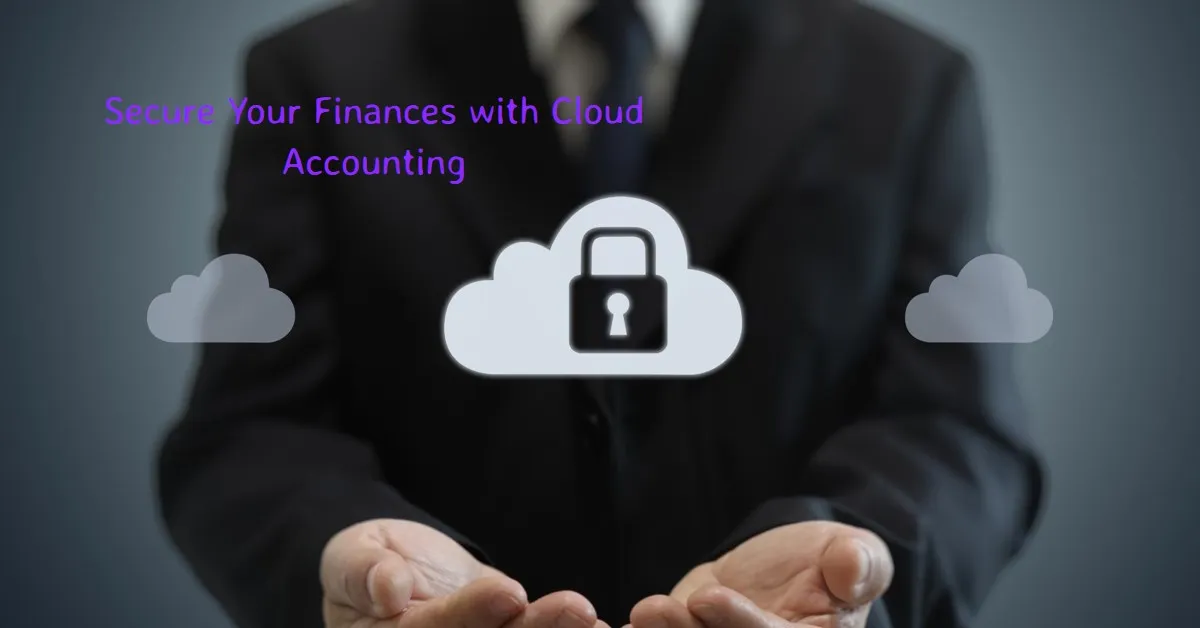
More and more, businesses are using cloud accounting because it’s easy and flexible. However, the threat of cyber attacks makes us worry. Is your money safe in the cloud? To keep our data secure, we must look at the safety steps cloud services use.
AdvertisementA recent survey found that 73% of companies are using some cloud service. This number is expected to keep going up. Big companies are leading this trend by putting over $5 million into cloud services and apps each year. Even smaller and growing companies are spending a lot more now compared to a few years ago.
The good thing about cloud accounting is that it’s safer and simpler to use. Unlike old systems where data is on one computer, cloud data is on remote, secure servers. This setup comes with strong security features. Things like encryption and regular checks help keep money data safe and private.
Microsoft says 91% of business owners noticed better security when they switched to cloud software. But there’s still a worry about threats from within. Nearly 90% of companies have faced insider attacks each month. These stats are from a McAfee report on cloud risks.
As cloud accounting becomes more common, it’s key to know the risks. We’ll explore how safe cloud accounting is and look at what keeps our financial data secure. Now, let’s dive into the security of cloud accounting. We’ll cover what problems to watch for and why it’s a smart choice for managing money data today.
Key Takeaways
- Businesses like cloud accounting for its better safety and user-friendliness.
- 73% of organizations use some cloud service already.
- Cloud accounting keeps your data safe on remote, secure servers with strong protections.
- After switching to cloud software, 91% of business owners saw better security.
- It’s vital to know the risks and how cloud providers keep us safe when using cloud accounting.
Is Cloud Accounting Safe? Addressing Common Concerns
Yes, cloud accounting is generally safe and secure when using reputable providers that implement robust security measures.
Here are some key reasons why:
- Cloud accounting providers prioritize data security with advanced measures like encryption, firewalls, intrusion detection systems, and regular security audits. Data is encrypted during transmission and storage to protect confidentiality.
- Multi-factor authentication adds an extra layer of security by requiring multiple forms of verification to access accounts, reducing unauthorized entry risks.
- Cloud accounting systems automatically back up data regularly to multiple secure locations, safeguarding against hardware failures, cyber attacks, or accidental deletions. Offsite disaster recovery centers protect data in major incidents.
- Cloud providers have high levels of physical and electronic security at their data centers, including backup power, security personnel, and biometric scanners. Data is stored in multiple locations to protect against floods, fires, etc.
- Centralized cloud storage gets critical data off users’ devices and email attachments, reducing risks compared to storing it locally. Role-based access controls limit permissions to only what is needed.
However, some inherent risks remain, such as the potential for hacking attempts and unauthorized access. Businesses should research providers thoroughly, understand their security practices and certifications, and consider their own risk tolerance. Proper user access controls and staff training are also important.
Understanding Potential Security Risks
Data breaches and unauthorized access are big worries in cloud accounting. Hackers might try to get into cloud systems to steal important data or cause problems. There’s also a risk that harmful software could affect cloud accounting data. But, known cloud providers spend a lot on high-tech security. They also have teams of experts who always watch for threats.
Comparing Cloud and Traditional On-Premise Accounting Security
Cloud and traditional on-premise systems have different safety issues. Local systems face risks like fires, floods, or accidents like spilling coffee. They also usually don’t offer the same updated security features as cloud software.
| Security Aspect | Cloud Accounting | On-Premise Accounting |
|---|---|---|
| Data Backup | Automatic, frequent backups stored in multiple secure locations | Manual backups, often stored on-site or on external hard drives |
| Software Updates | Automatic updates ensure the latest security patches and features | Manual updates, often delayed or overlooked |
| Physical Security | Data stored in secure, geographically dispersed data centers with 24/7 monitoring | Data stored on local servers or computers, vulnerable to physical threats and disasters |
| Access Control | Multi-factor authentication, role-based permissions, and audit trails | Often reliant on basic password protection and manual access management |
Top cloud accounting providers like QuickBooks Online and Xero focus on security. They use encryption and firewalls, plus they have regular security checks. They also provide options like multi-factor authentication. This makes sure only the right people see and change financial data. In comparison, the safety and backup options of office computers are usually not as strong as those offered by cloud services.
In a Microsoft study, 91% of growing companies said that cloud security got better after they made the switch. Using a trusted cloud provider means businesses can access strong safety measures. These might be hard or costly to set up on their own.
“The cloud is more secure than traditional IT systems. When data is in the cloud, it is kept safe even if someone should attack your computers or if there is a disaster that damages your office.” – Microsoft
Choosing good cloud accounting and following safety steps can protect your business. By picking a well-known provider and using smart practices, companies can safely enjoy the benefits of cloud accounting. This reduces the chance of facing serious security issues.
How Cloud Accounting Protects Your Financial Data
Cloud accounting keeps your financial info super safe. It uses many levels of security and high-tech tools to protect your data. It follows strict rules to keep your accounting data secure.
Physical Storage in Secure Data Centers
Companies like Intuit and AccountsIQ store your data on special servers. These servers are in secure locations worldwide. So, if one site has a problem, your data is still safe.
Each center has security 24/7. They use cameras, fingerprint scanners, and guards to keep everything safe. This is much better than what most companies can do on their own, ensuring your data is extra protected.
Automatic Data Backups and Disaster Recovery
Your data gets backed up every few minutes with cloud accounting. That’s way faster than manual backups. And it’s stored in different places, making it safe from disasters.
If anything happens, you can get your data back quickly. Not like the old way where you might wait a long time and hope for the best.
Data Encryption and Secure Connections
Your data is encoded by cloud accounting to keep it safe. They use strong codes when your data moves or sits. This is the same kind of protection banks use.
Only you can see your data, even on public internet spots. And when you’re online, there’s a secret path for your data’s travel. This makes sure no one gets in the way of your information.
| Security Measure | Cloud Accounting | Traditional On-Premise |
|---|---|---|
| Physical Data Storage | Secure data centers with 24/7 onsite security | On-premise servers with limited physical security |
| Data Backups | Automatic backups every few minutes, stored offsite | Manual backups, often stored on-premise |
| Data Encryption | 128-bit SSL encryption for data in transit and at rest | Varying levels of encryption, depending on the solution |
| Secure Connections | Encrypted protocols (HTTPS, TLS) and VeriSign-secured | Depends on the network setup and security measures |
Cloud accounting gets big tests to make sure it stays safe. AccountsIQ, for example, is hosted on a super safe platform called Microsoft Azure. It’s also checked by top security firms like PwC to stay ahead of any problems.
To make security even tighter, cloud accounting asks for strong passwords. It also has two-step logins. So, if someone tries to get in, they get stopped fast.
Conclusion
Cloud accounting is full of benefits for businesses. Top among them is the strong focus on security. Trusted providers take measures to keep your data safe. They set up strict user rules, require strong, changing passwords, and add extra layers of security. Staff also get training to spot and avoid potential threats.
The risk isn’t moving to the cloud; it’s sticking with outdated methods. Cloud accounting not only keeps your data safe but also lets you check your finances from anywhere at any time.
More and more companies are picking cloud-based accounting for its security and efficiency. In the US, businesses using cloud accounting grow their clientele faster. They also see the benefit of getting help from expert accountants without paying too much.
Cloud accounting tools are designed with top-notch security in mind. They use things like data encryption and extra verification steps to make sure your data is safe. This way, they help prevent loss, mistakes, and fraud.
Cloud accounting isn’t just about security. It also fosters teamwork by linking with other business management tools. This improves how people work together and boosts work output. Together with remote work, it’s making companies more eco-friendly by cutting paper waste and saving resources.
As more companies in the USA move to the cloud, it’s clear this tech is shaping the future. It offers a reliable, safe, and scalable way for firms to handle their money. It’s a step forward for the industry and a win for everyone involved.
FAQ
How does cloud accounting protect against data breaches?
Cloud accounting keeps data safe with encryption and access controls. They use threat detection and do checks to find weak points. Also, they follow strict security rules.
Is cloud accounting more secure than traditional on-premise accounting?
Often, yes. With on-premise accounting, data can be lost in a physical disaster or a cyber-attack. But with cloud accounting, data is kept securely off-site. It can also be quickly restored if something goes wrong.
How do cloud accounting providers store and backup data?
Cloud accounting providers keep data on safe servers, often in many centers. This is done for backup in case one fails. They back up data automatically and keep copies off-site.
What encryption methods do cloud accounting platforms use?
Top providers, like QuickBooks Online Advanced, use 128-bit SSL encryption. Banks use the same tech. This keeps your data safe when sending and storing it.
What additional security measures do cloud accounting providers take?
Proven providers, like AccountsIQ, use many safety steps. They run their services on the secure Microsoft Azure platform. They have important certifications, do penetration tests, have strict rules for passwords, and use multi-factor authentication.
What can businesses do to maximize their cloud accounting security?
Businesses can make cloud accounting more secure. They should control who can do what in the system. It’s also crucial to use strong, updated passwords, turn on multi-factor authentication, and teach staff about security risks.
Source Links
- https://quickbooks.intuit.com/au/blog/growing-a-business/is-cloud-accounting-safe-heres-everything-you-need-to-know/
- https://www.caseware.com/us/resources/blog/cloud-accounting-myths-debunked/
- https://ebizcharge.com/blog/cloud-accounting-101-how-to-safeguard-transactions-using-the-online-cloud/
- https://www.linkedin.com/pulse/how-safe-secure-cloud-accounting-jamie-allen
- https://quickbooks.intuit.com/r/thought-leadership/is-cloud-accounting-safe-heres-everything-you-need-to-know/
- https://expertiseaccelerated.com/cloud-accounting-pros-and-cons/
- https://financial-cents.com/resources/articles/cloud-accounting-security-what-to-know/
